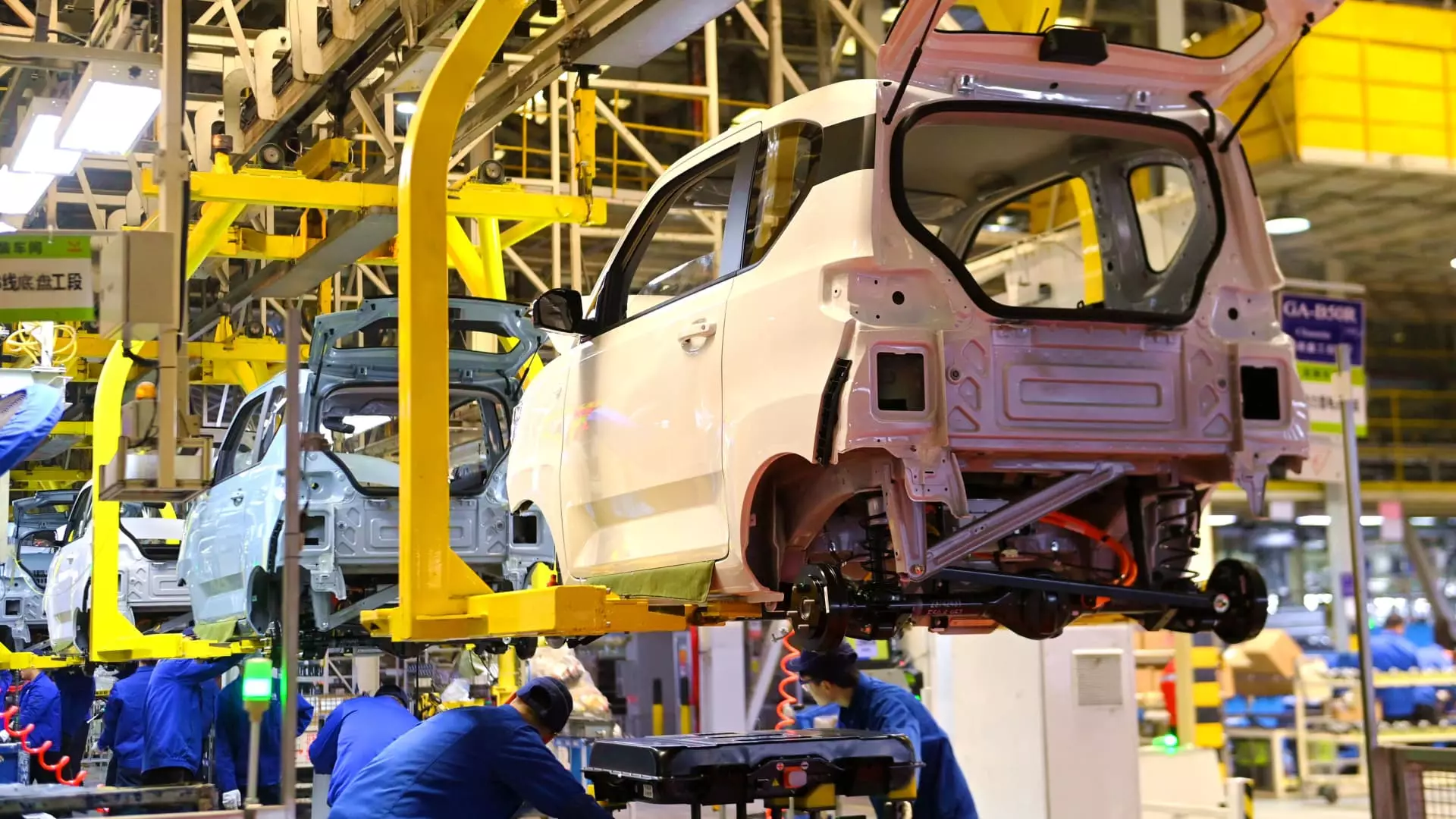China has invested a whopping $230.8 billion in its electric car industry over the past decade. This massive amount represents 18.8% of total electric car sales between 2009 and 2023. The decline in the ratio of spending to EV sales from more than 40% pre-2017 to just above 11% in 2023 highlights the changing landscape of the industry. This substantial financial support has allowed Chinese automakers to flourish in the electric car market, putting pressure on their Western counterparts.
Beijing’s policy initiatives have not only included financial support but also non-monetary policies that have favored domestic automakers over foreign ones. On the other hand, the U.S. has not been as successful in creating conditions conducive to developing its electric car industry. The lack of aggressive action from Western automakers and governments has put them at a disadvantage in the global market. Government subsidies have not always been utilized effectively, with reports of companies cheating the system and misusing funds for purposes other than car development.
The growing penetration of electric cars in China has posed a significant challenge to foreign automakers who previously dominated the fuel-powered market. This increased competition has led to a price war within the EV industry, with companies cutting prices or launching cheaper product lines to stay competitive. Despite the significant progress made by Chinese EV makers and battery producers, profits have not seen a significant boost due to intense market competition and oversupply.
In a well-functioning market economy, the excess supply of electric cars should lead to industry consolidation. However, Chinese EV companies continue to face challenges in optimizing profits and balancing supply and demand. Analysts have even suggested that major U.S. automakers should consider leaving China and focusing their resources elsewhere. This reiterates the need for strategic decisions and a reevaluation of market approaches in the global electric car industry.
The U.S. has shown increased efforts to support the electric car industry, with the passing of the Inflation Reduction Act allocating $370 billion for promoting clean technologies. The legislation also provides a $7,500 credit for qualifying electric car purchases, highlighting the government’s commitment to sustainable transportation. This stands in contrast to China’s average support per electric car purchase, which has decreased from $13,860 in 2018 to $4,600 in 2023, showcasing the changing dynamics of government support in the industry.
Overall, the challenges faced by the Chinese electric car industry highlight the complexities of global competition and the need for strategic decision-making to thrive in a rapidly evolving market. While China has made significant investments and policy initiatives to drive the growth of its electric car industry, challenges such as intense competition, oversupply, and lack of profitability continue to persist. As the industry continues to evolve, it is crucial for stakeholders to adapt to changing dynamics and make informed decisions to ensure long-term success in the electric car market.


Leave a Reply